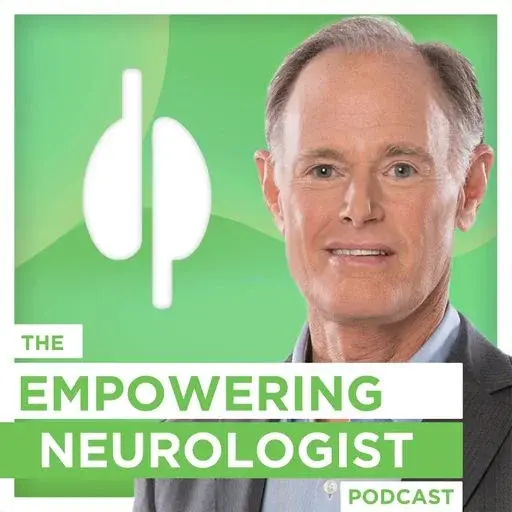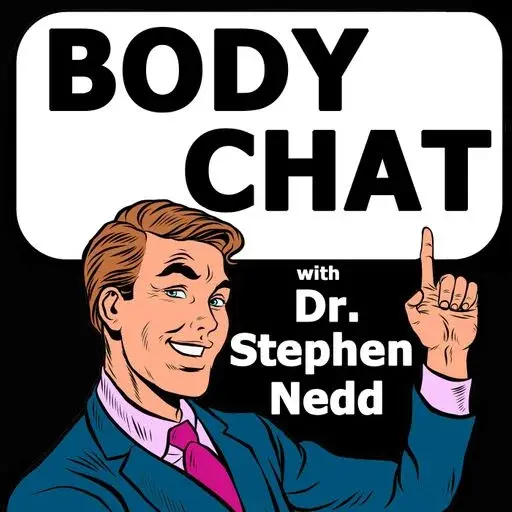Amazon Music — Free Trial
#Ad
Description
"How Your Brain Works and Changes" by Andrew Huberman explores how the nervous system influences sensory perception, emotions, thoughts, and behavior. He explains how neuroplasticity rewires the brain and dives into neurons, synapses, and brain chemicals. Huberman also discusses rhythms that regulate learning, sleep, and focus, providing foundational insights for understanding brain function. This episode sets the stage for the Huberman Lab Podcast, offering practical knowledge about how the brain adapts and evolves.
"How Your Brain Works and Changes" by Andrew Huberman explores how the nervous system influences sensory perception, emotions, thoughts, and behavior. He explains how neuroplasticity rewires the brain and dives into neurons, synapses, and brain chemicals. Huberman also discusses rhythms that regulate learning, sleep, and focus, providing foundational insights for understanding brain function. This episode sets the stage for the Huberman Lab Podcast, offering practical knowledge about how the brain adapts and evolves.
How Your Brain Works and Changes
Guest
This time, there are no guests—just Andrew Huberman delving deeply into today's topic.
Category
Brain Health, Continuous Development
About The Host
Andrew Huberman (PhD), Professor of Neurobiology at Stanford University, is a neuroscientist and host of the Huberman Lab Podcast. He directs research on neural plasticity, vision restoration, and breathing's role in brain performance. His studies aim to enhance stress management, improve sleep quality, and optimize overall health. He is also the author of "Protocols: An Operating Manual for the Human Body," a practical guide to applying neuroscience tools in everyday life.
Andrew Huberman (PhD), Professor of Neurobiology at Stanford University, is a neuroscientist and host of the Huberman Lab Podcast. He directs research on neural plasticity, vision restoration, and breathing's role in brain performance. His studies aim to enhance stress management, improve sleep quality, and optimize overall health. He is also the author of "Protocols: An Operating Manual for the Human Body," a practical guide to applying neuroscience tools in everyday life.
About The Guest
This episode features Andrew Huberman as the sole presenter, offering his expertise and insights.
This episode features Andrew Huberman as the sole presenter, offering his expertise and insights.
Support the Guest
This episode does not include any guest appearances, or information about the guests' website, Instagram, Facebook, or Twitter profiles is currently unknown to us. We’ll update this page as soon as more details become available.
Support the Host
At this time, the podcast host does not have an official website or social media profiles on Instagram, Facebook, or Twitter—or they are currently unknown to us. If we discover any updates, we’ll add them here so you can stay connected.
If You Like This, You Might Like...
Do You Know Your Important Numbers?: Part 2
Do You Have Benign Paroxysmal Positional Vertigo?: The Secrets Behind BPPV
Vestibular Rehab – Vestibular Mobile Therapy
Traditional Chinese Medicine for Dizziness
Keys for Brain Health and Cognitive Function
Vestibular Migraines, Vertigo, Migraines, and Dizziness
Are Your Prescription Medications Causing Memory Loss?
Brain Regeneration: 12 Ways to Heal Brain Cells
The Functional Medicine Approach to Ending Migraine
Our Top Brain Health Tips of the Year
How to Keep Your Memory Strong as You Age
How to Improve Memory and Focus Using Science Protocols
Strategies to Combat Parkinson's
Parkinson’s is a Man Made Disease, But Reversal is Possible
Understanding Parkinson's & Healing From Within
80% of Heart Attacks & Strokes Happen Because of This
CoQ10 Ubiquinol and Selenium: You Need These for Stroke or Heart Attacks
ADD & ADHD Drugs – Chemically Controlling Our Kids
Dizziness, Anxiety and Vestibular Disorders
Natural and Alternative Treatments for ADD & ADHD
The Best Remedy for ADD/ADHD
Worried About Dementia? This Is a Must-Hear
ADHD and How Anyone Can Improve Their Focus
The End of Alzheimer’s: Part 1
How Improving Brain Health Can Change the Way You Look, Feel and Thrive
Reversing Alzheimer’s: New Research Improves Cognition and Protects Brain Health
You Can Prevent and Even Reverse Cognitive Decline





-%20Health%2C%20Nutrition%20and%20Functional%20Healthcare.webp)












